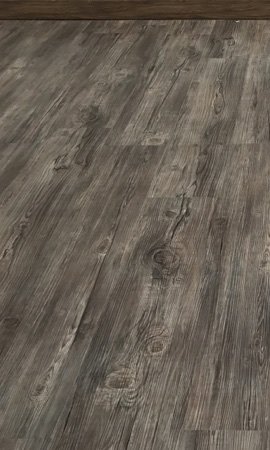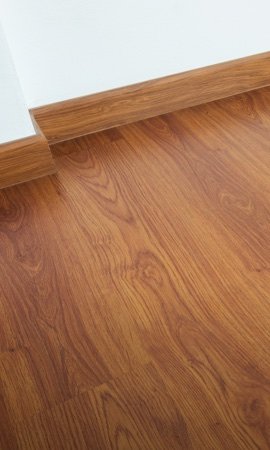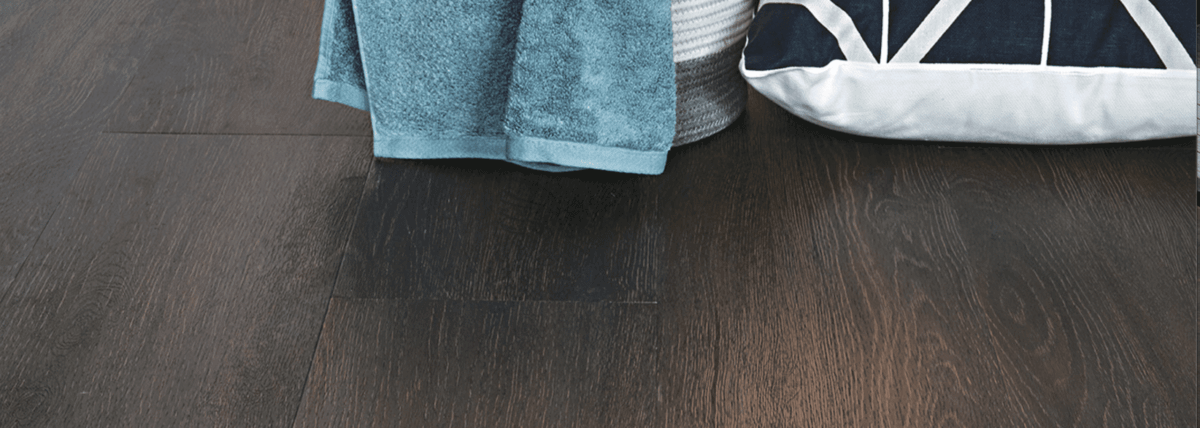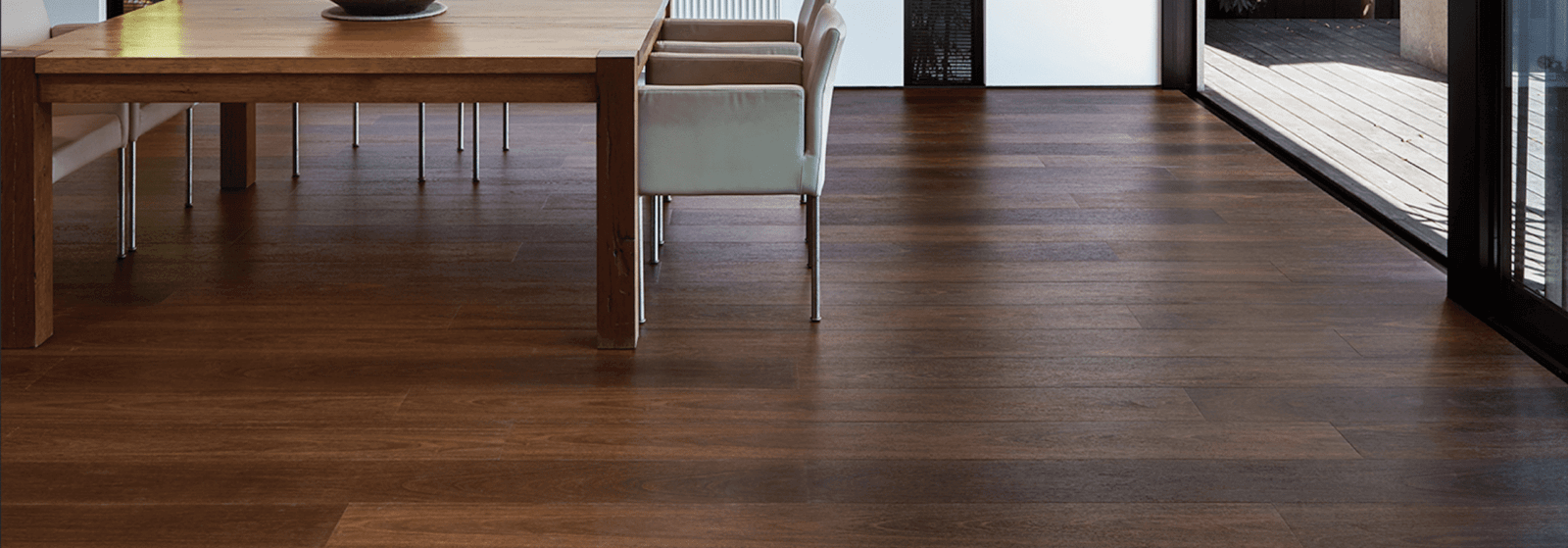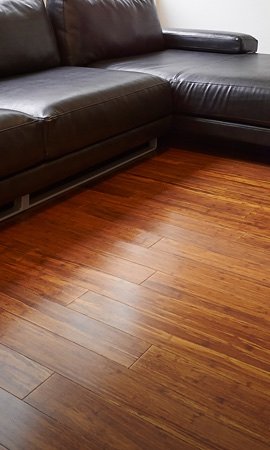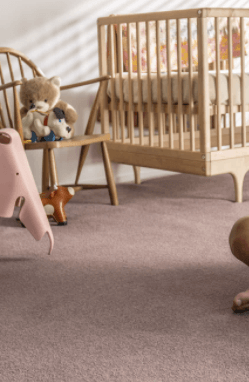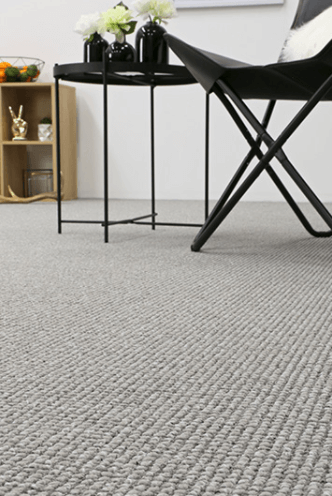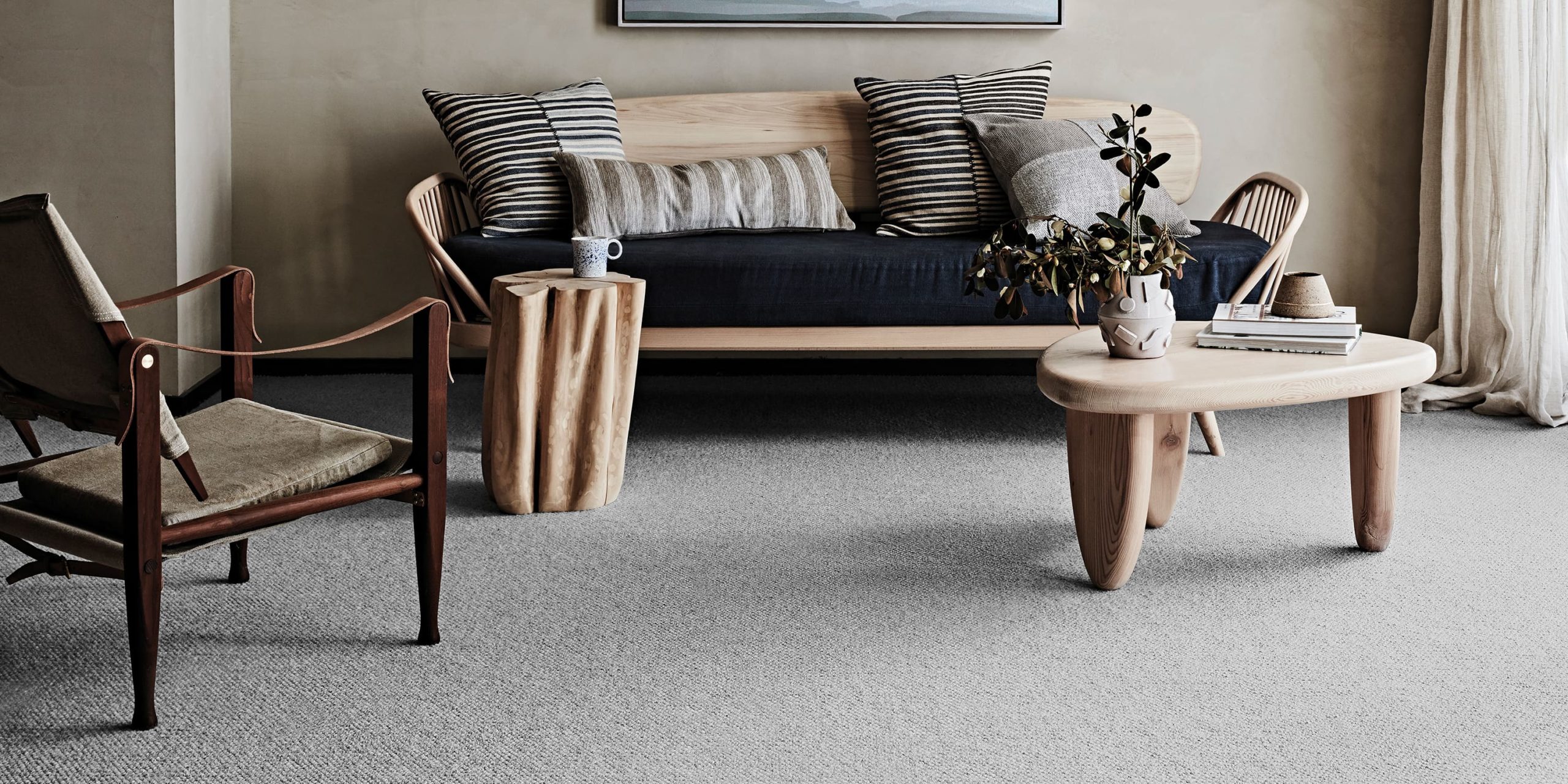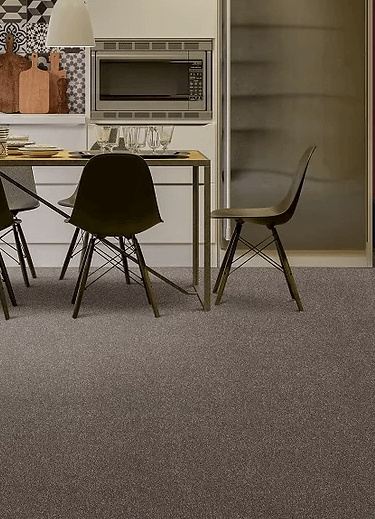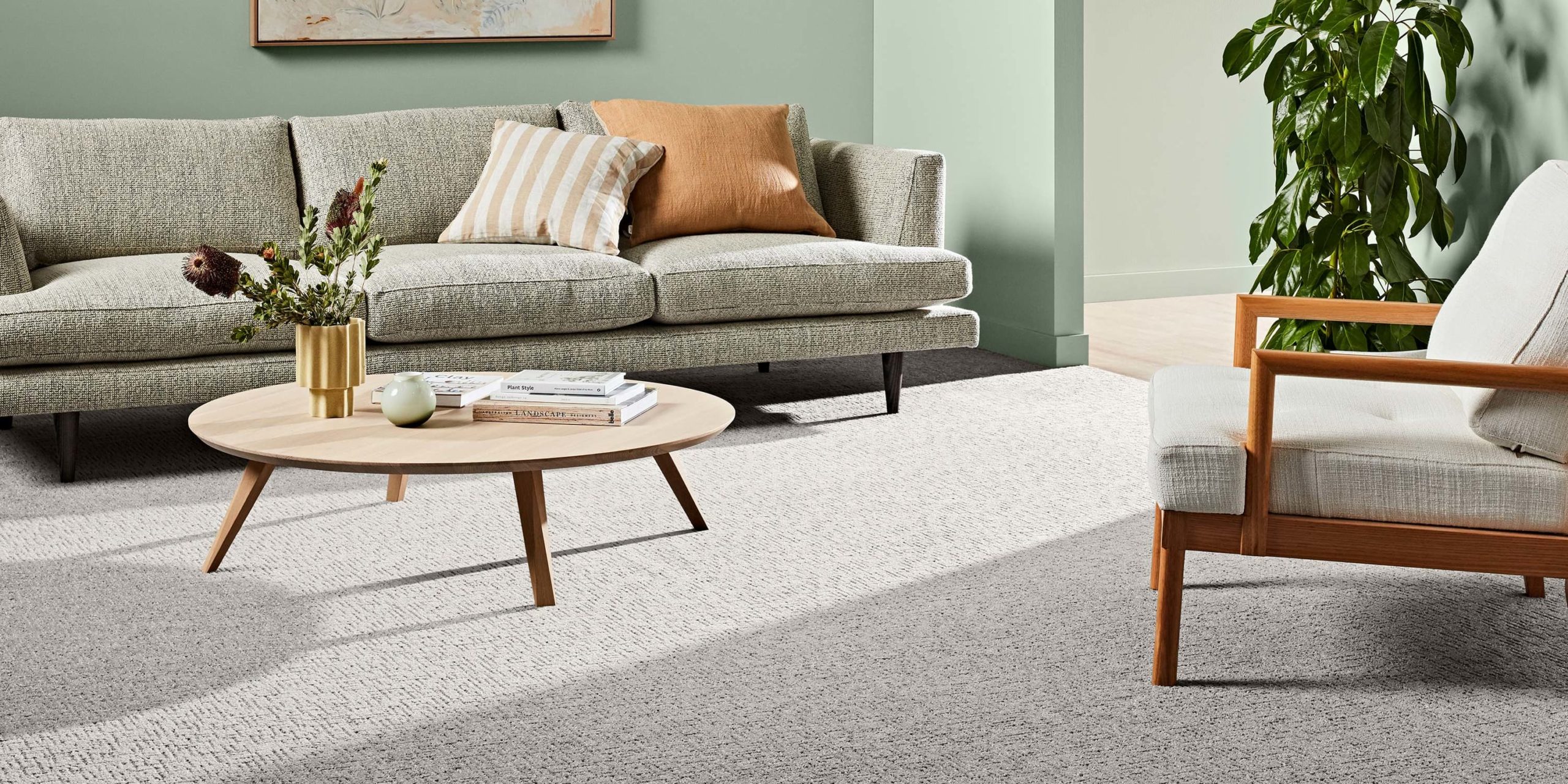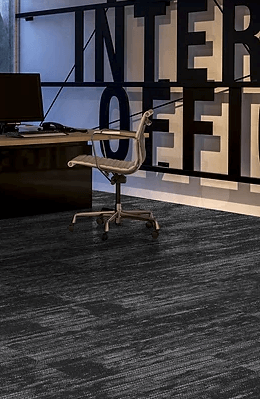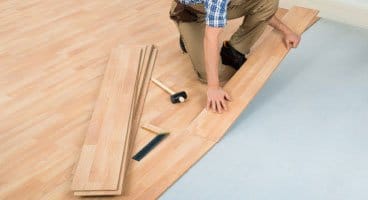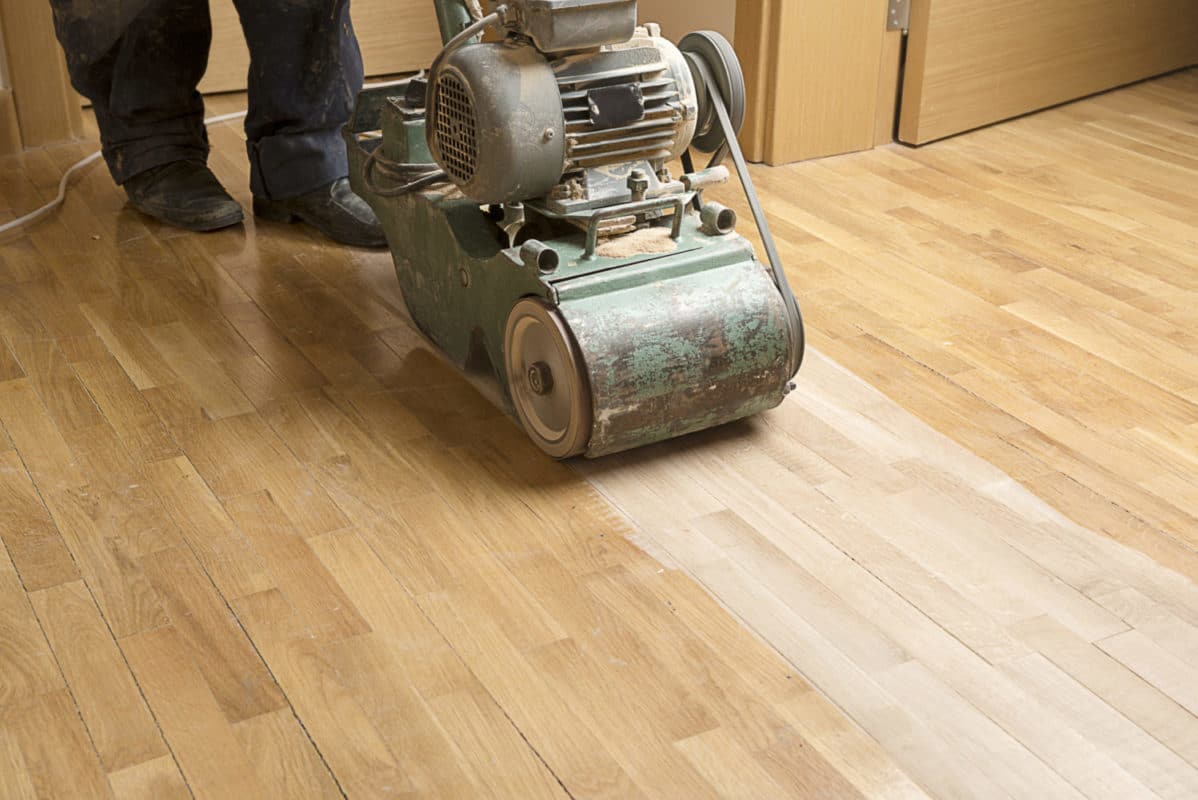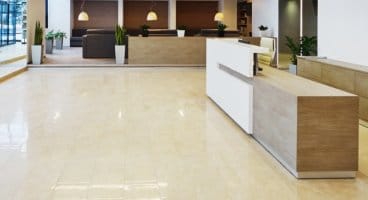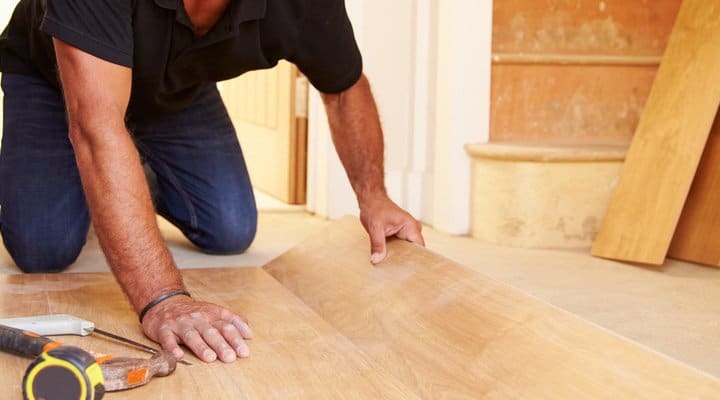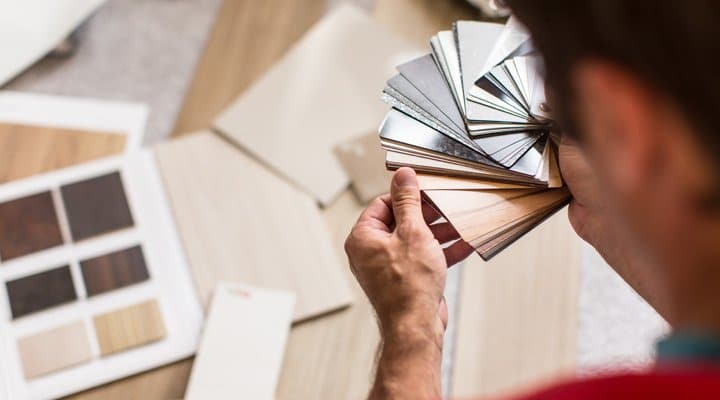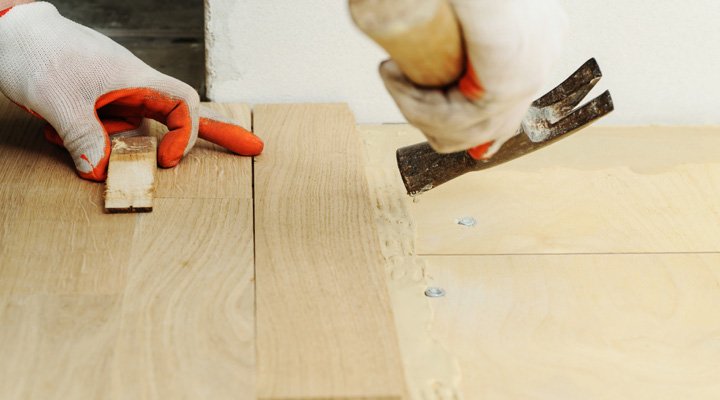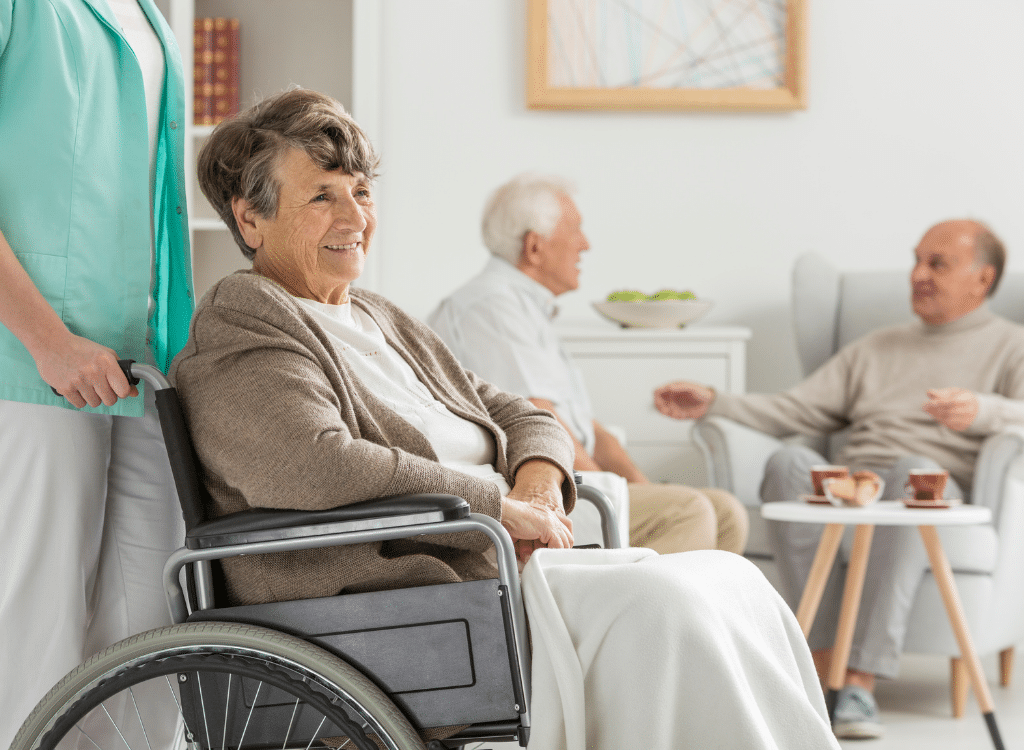

04 Aug Safe Floors and Tiles for Senior Living
Looking to renovate flooring for aged care centres or the elderly? The first thing you will need to consider is safety and ease of maintenance. The last thing you will want is an accident, and it is important (and legally required) to make an educated choice of flooring material for senior living. Also, for seniors who live alone in a household, a low maintenance surface must be employed to sustain a constantly high level of safety in all areas.
This article will help you understand floor safety and provide updated recommendations based on CSIRO HB197 & Standards Australia AS/NZS 4586.
Recommended Flooring Options
Let’s jump right into it! Here we have the recommended flooring options for senior living based on important criteria including slip resistance, cushioning in case of a fall and ease of cleaning and maintenance.
Carpet for Senior Living
Rugs and carpets are textiles that can be decorated and applied to indoor flooring. They come in both synthetic materials and natural wool. FloorVenue recommends hypoallergenic options like natural wool instead of cheaper polyester and nylon. Thicker carpets tend to add softness and the way the fibres are wound together can increase friction and slip resistance.
Advantages of Carpets:
- Low Slip – A carpet can add a level of friction to indoor floors, making it slip-resistant.
- Absorption – In the event of spillage of any liquid, the carpet will immediately absorb the liquid, preventing dangerous slips and falls. (Although liquid + carpet is not ideal)
- Cushioning – A thicker carpet can provide cushioning to protect people from dangerous impacts and also feel comfortable underneath their feet.
- Warmer – Carpet is a natural insulator which is a great addition to any setting.
Disadvantages of Carpets:
- Maintenance – A carpet is much harder to clean and maintain. It can be difficult to remove particles from between the fibres, leading to the accumulation of dirt.
- Dust – High attraction to dust and other floating particles can pose a risk to citizens with respiratory irritation, especially with pets in the household.
- Wheelchair Usage – Because of the high level of friction, it is more difficult to roll wheeled objects across carpeted areas compared to hard flooring. This makes it a little more difficult to use wheelchairs and walkers in the house.
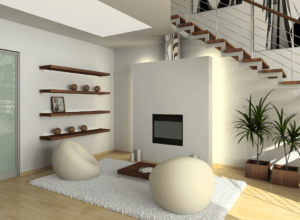

Vinyl Plank Flooring for Senior Living
Vinyl flooring (a.k.a Luxury Vinyl Planks) are a recommended senior living floor covering as they are softer and often designed to have higher slip resistance and stain resistance than other categories. Luxury vinyl planks are made of polyvinyl chloride (PVC) which is a form of plastic.
Advantages of Vinyl Plank Flooring:
- Soft & Safer – Since vinyl planks are plastic and softer, they can somewhat cushion dents, impacts and falls better than the unforgiving choice of timber or tile.
- Dent Resistant – Similarly to the previous benefit, vinyl flooring is much more durable against heavy impacts.
- Cleaning & Maintenance – Luxury vinyl planks are 100% waterproof and often stain-resistant. This makes cleaning and maintenance much easier.
Disadvantages of Vinyl Plank Flooring:
- Scratches – The drawback to the softer plastic material of vinyl flooring is that they are more susceptible to scratches and cuts. Beware of dragging furniture!
- Artificial Look – Since vinyl planks are made of plastic, they can be perceived as less authentic from an aesthetic viewpoint.
- Respiratory Irritants – Lower quality vinyl floors may give off emissions known as volatile organic compounds (VOCs). Whilst they may not be harmful in trace quantities, these can be uncomfortable.
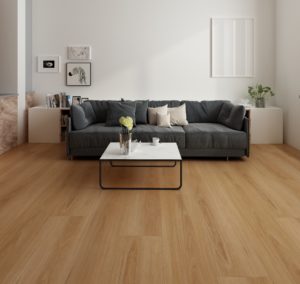

WPC Hybrid Flooring for Senior Living
Hybrid flooring is a waterproof and wood-look floor covering which comes in three forms – stone plastic composite (SPC), wood-plastic composite (WPC), and stone-wood composite (SWC). Whilst all hybrid floors are fully waterproof, WPC options are slightly softer and more comfortable underfoot which gives it a slight edge when it comes to flooring for senior living.
Advantages of WPC Hybrid Flooring:
- Waterproof – Hybrid flooring is 100% waterproof, meaning that you can use water to wipe away any dirt, as long as it is not flooded. This is a good choice for the elderly as it is easy to clean.
- Less staining – Less absorption means that floors will suffer fewer stains, making them easy to clean for aged individuals.
- Comfort – WPC is slightly soft, meaning it is comfortable for seniors to walk on and are slightly more forgiving against injury compared to harder options in the event of a fall.
Disadvantages of WPC Hybrid Flooring
- Hard – WPC hybrids still have a high level of hardness, meaning that impacts are more likely to cause injury compared to carpet or vinyl flooring.
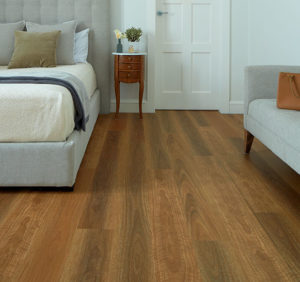

Flooring to Avoid for Senior Living:
Ceramic & Porcelain Tiles
Tiles are square-cut pieces of baked clay that can be glazed with a crystalline compound that is usually oxides. They come in different forms – natural stone, ceramic tile and porcelain tile ranges. Although they may be decently slip-resistant, floor tiles are unfortunately a very hard material, limiting the protection for an individual in the event of a fall.
Advantages of Floor Tiles
- Textured & Structured – Many tiles, whether porcelain or ceramic, can be designed with surface embossing technology. This adds friction to the flooring, preventing slips and falls. P3 rated or higher tiles are suitable for bathrooms and shower floors.
- Cleaning & Maintenance – Maintenance only consists of wiping, mopping, and vacuuming and is very easy to clean since they are both extremely durable and fully waterproof.
Disadvantages of Floor Tiles
- Hard & Unforgiving – Tiles have a high level of hardness. This means there is no protection of bone fracture or head injury in the event of a fall.
- Cold & Non-insulating – Both porcelain and ceramic tiles do not insulate heat well, this can be uncomfortable in winter especially with senior residents who likely enjoy the warmth.
Solid & Engineered Timber Flooring
Timber flooring is essentially wood extracted straight from the trunks of trees and sawn into floorboards. You can choose from solid timber or engineered timber, which is essentially a thin veneer of real timber fused to plywood or waterproof composite core.
Advantages of Timber Flooring:
- Healthy – Timber flooring has low respiratory irritant emissions, also known as volatile organic compounds (VOCs) as they are made from more natural materials (Especially solid timber).
- Accessibility – Timber flooring offers great ease of use as the surface can easily accommodate wheelchair movement.
- Aesthetic & Beauty – Timber flooring is very comfortable underfoot and gorgeous to look at. From an aesthetic perspective, you can’t go wrong with timber flooring.
Disadvantages of Timber Flooring:
- Hard Surface – First and foremost, timber flooring is unforgiving in the event of a fall as they are very hard. Oak is slightly softer than hardwoods which makes it a slightly better choice when it comes to accommodating seniors.
- Expensive – Solid timber or engineered timber flooring is more of an expensive flooring option compared to synthetic ranges like laminate or hybrid flooring options.


Understanding Floor Safety
When it comes to choosing your flooring, safety can be broken down into two parts – preventive and protective measures. Preventive measures involve choosing the appropriate non-slip materials while protective measures include applying a surface that is soft and cushioned.
Preventive: Slip-Resistant Flooring
Wet surface slip tests are measured by sliding a wet pendulum over the surface of a material and gives a result between P1 – P5, where P5 is the highest and most slip-resistant.
- P1 – Suitable for ordinary residential use in low traffic and safe areas.
- P2 – Hospital wards and aged care facilities.
- P3 – Public bathroom flooring and toilets in shopping malls, hospitals & food courts.
- P4 – External ramps including driveways and footpaths.
- P5 – Commercial kitchens and swimming pool ramps.
Oil slip tests are rated with a different scale from R9 – R13, where R13 is the highest and most slip-resistant on an oiled surface. This is tested by a contoured safety shoe against a motor oiled surface of varying inclinations before sliding.
- R9 – Inclination of 6 to 10 degrees before sliding
- R10 – Inclination of 10 to 19 degrees before sliding
- R11 – Inclination of 19 to 27 degrees before sliding
- R12 – Inclination of 27 to 35 degrees before sliding
- R13 – Greater than or equal to 35 degrees of inclination before sliding
Dry floor friction tests are measured by using a ‘tortus’ which determines how much friction there is when dragging an object across a surface. This has only two measures – D0 or D1, where D0 is more slippery than D1 when dry.
- D0 – 0.40 coefficient of friction or greater, not suitable for elderly living purposes.
- D1 – Lower than 0.40 coefficient of friction, more suitable for elderly living and other commercial settings.
In commercial aged care centres, slip resistance of a surface is a legal implication. In Australia, aged care facility floor coverings must have at least R9 certified slip ratings.
Although it is not a legal requirement, we highly recommend using products which have achieved a minimum of R10, P2, and D1 test reports. There is a correlation between P, R and D slip resistance, however they are separate measurements and do not always overlap.
Protective: Floor Impact Cushioning in the Event of a Fall
In the event of a fall, it’s quite natural to hope the flooring is nice and soft. Luckily, choosing between vinyl, wood-plastic composites, and carpets will be a better choice for seniors. However, they can range from as soft as your living room rug to as hard as your kitchen tiles. Especially in age care facilities and households with seniors, flooring must be equipped with softer materials to protect against dangerous falls.
Seventy-five per cent of people aged 65 and over that are hospitalised for injuries are the result of slips and falls. As age increases, bone mass and density drop, making the lightest mishaps a huge risk for aged citizens. With highly decreased strength and balance, this demographic is at risk of wrist, arm, ankle, and hip fractures. Even worse – head injury. So, it is important to prevent slips and falls in the first place and apply protection against the high risk of falls.
Pro Tips: How to Clean and Maintain Senior Flooring
Over time, floors accumulate dirt, dust, and stains. This can be an issue for both the longevity of any flooring and the safety of its users. It is important to regularly clean and maintains flooring to keep the household slip-resistant and safe. The following recommendations will help achieve this.
Vacuuming
Using a vacuum is an easy way to collect dirt and dust for disposal. Especially for ageing individuals, the elimination of the need to broom makes it an easy to maintain flooring option. In a matter of fact, companies like iRobot and Ecovacs manufacture vacuums that can clean areas on their own. That’s right – at a push of a button, your grandparents can tell a robot to expel the dust that’s been making them cough. It is crucial to minimise the strain in cleaning to make it easier for seniors to regularly keep households clean.
Sweeping
Like vacuuming, sweeping amasses dust in one place to be picked up and disposed of. Some seniors may prefer this as there are no loud noises that can irritate them. Also, elderly individuals are prone to trip on vacuum wires or maybe even spill liquid on them. Sweeping allows them to safely freshen an area and reduce the risk of falls or electrocution.
Things to Avoid when you Clean and Maintain Flooring
The following procedures can pose risks to aged individuals. For those that are unavoidable, it is important that carrying out the task is done by a cleaner who can safely complete the job or is at least done with extreme care.
- Excess Moisture when Mopping – Mopping may be done to give tiled flooring a thorough scrub. However, it involves getting the floor substantially wet. If done on the wrong floor, water may seep into crevices, causing potential damage. Also, elderly residents can easily slip and fall because of the water on the ground, posing a risk of injury. If necessary, mopped areas must be dried immediately to avoid slippery surfaces.
- Harsh Chemical Cleaning Agents – Many companies sell sprays or liquids that can give floors a clean or shiny finish. However, many of these can contain corrosive ingredients, like sodium hydroxide or sodium hypochlorite (bleach). These can pose a risk to the well-being of senior citizens, as direct contact with these materials can cause irritation. If the use of cleaning agents is required, it should be done with care and the use of gloves and a mask to ensure that elderly residents are safe and protected against harmful substances.
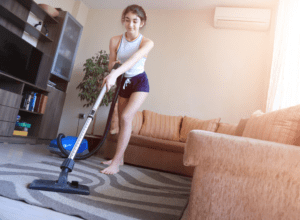

Conclusion – Best Flooring for Senior Living
All in all, senior citizens require floors that are not slippery, not dangerously hard, and are easy to maintain. Renovators for a senior living should carefully take into account the slip rating of the flooring design to be used and choose the appropriate places to apply them. If possible, luxury vinyl planks, rubber flooring or other soft materials should have maximised areas to protect senior citizens in the event of a fall. Once a flooring choice has been made, it is crucial to maintain its wellbeing to ensure it consistently stays as safe as required for safe senior living.
